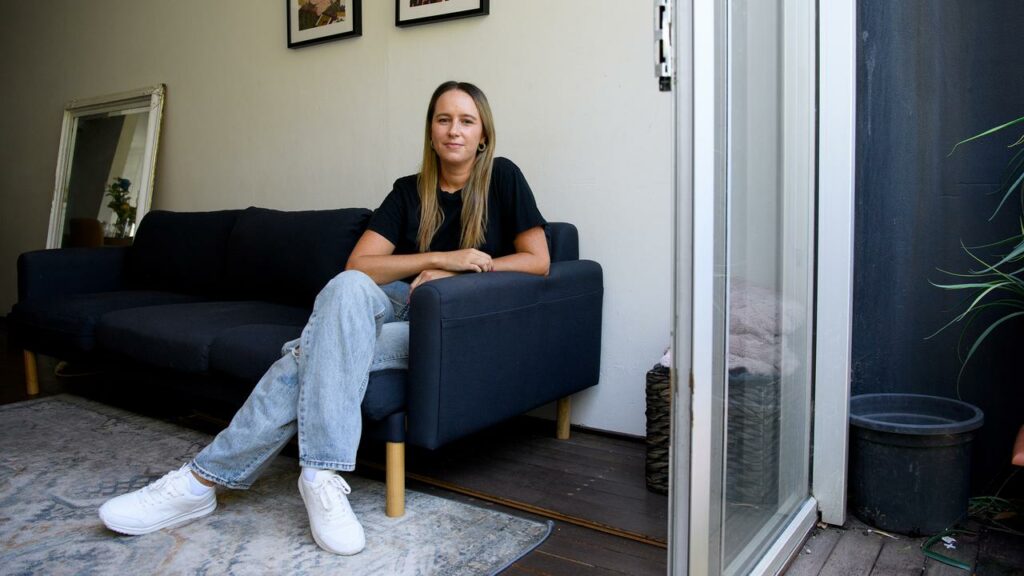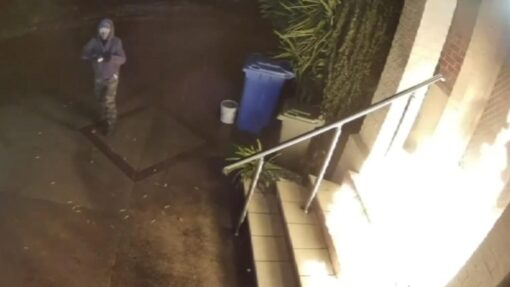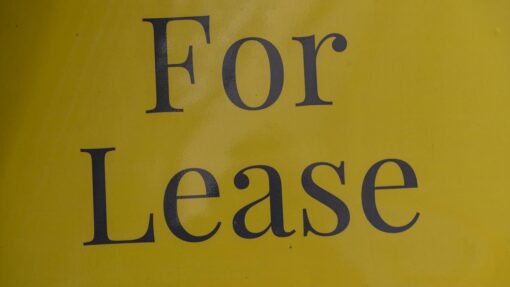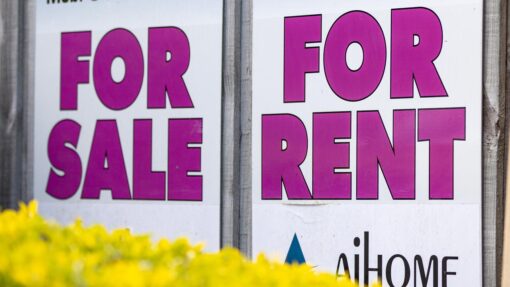Tenants forced to move amid ongoing rent explosion
Luke Costin and Phoebe Loomes |

Before her landlord jacked the rent by nearly $20,000 a year, writer Chantelle Schmidt and her housemates had been trying to lay low.
She knew vacancy rates were low, rents were skyrocketing and affordability was diving.
But when forced to contact the property manager to report a smelly room, Ms Schmidt reminded the landlord she and her housemates were paying “really good rent”.
Days later – at 5.07pm on a Friday – a short and succinct email landed in her inbox.
Rent would jump by more than a third from mid-April.
“Part of me really thought it was a mistake because $700 is such a considerable amount,” she told AAP.
Her offer for a 10 per cent increase – pointing to the price of a comparable property – was knocked back.
“(The agent said) I’ve spoken to the landlord and unfortunately he was very stern about not negotiating the increase. The rent has been cheap for some time and we can re-let the property at the increased amount’,” Ms Schmidt said.
The story of the three-bedroom sharehouse in the inner-Sydney suburb of Redfern, which went viral on TikTok this week, is one playing out across the nation.
A Domain rental report shows the median house rent in capital cities has risen 14.6 per cent in the past year while the regions are up 11.1 per cent.
The median unit in Melbourne costs 20 per cent more than it did 12 months ago, while Sydney (18.6 per cent) fairs little better.
Full-time student Max Richardson, living in Melbourne’s Brunswick, swallowed a 15 per cent jump in November for “what was a pretty substandard place”.
“I literally don’t know anyone who is paying the same amount or similar for this year, this cycle of leases. Everyone I know has had their rents jacked,” he told AAP.
“They’ve had to scrounge and scrape to deal with higher rents.”
Up the road at Preston, behind a shop, Tyler Peck has spent recent days scrolling through messages from scores of people wanting to be his new housemate.
He feels lucky he’s “on this end of it” but is worried what will happen when his landlord comes to consider his rent.
“It’s a very old house … even still it’s in huge demand,” Mr Peck said.
“I have friends on the Gold Coast and the rental crisis there is even worse.”
It’s far from over.
Treasury secretary Steven Kennedy this week told Senate estimates rent inflation would pick up “considerably” in 2023 amid a national vacancy rate below one per cent.
“We expect inflation in CPI rental prices to pick up considerably as the stock of rental agreements turns over, peaking in June,” he said.
The tighter private rental market was also the main factor in an “extraordinary” spike in social housing need, UNSW housing expert Hal Pawson said.
That need had already been growing due to decades of governments neglecting to tie social housing construction to rise in population.
“That pressure is going to be probably compounded (in coming months),” Prof Pawson told an affordable housing forum this week.
He said initiatives such as the federal government’s Housing Australia Future Fund were helpful but “nowhere near going to address the problem”.
The rental crisis in NSW is bubbling away as an election issue, with a survey published in The Australian showing rental affordability was the number-two issue for respondents, behind the overall cost of living.
NSW Labor has committed to banning no-grounds evictions, outlawing secret rental bidding, introducing a portable bond scheme and establishing an independent rental commissioner to advocate for tenants.
The party will also make it easier for renters to ask for pets in their homes.
“We will deliver serious rental reform, focusing on delivering fairness and security to renters,” housing spokeswoman Rose Jackson told a forum in Sydney.
Part of the Greens’ solution is to immediately freeze rents, stressing the move would not impose any costs on the government.
“The rental crisis in the private market is causing absolute chaos and pressure on the social housing and public housing space,” Greens MP Jenny Leong said.
“If you put an immediate freeze on rents and actually started having a conversation about introducing rent controls in NSW, we would deal with that crisis.
“It may sound like pie in the sky, but to me, I feel if the government has a role to play, the government should be delivering housing as a human right.”
Sydney’s Lucy Dwyer, who copped a 30 per cent increase this week from her landlord, said she hoped governments would cap weekly rents provided by corporate providers, and compel all high-rise developments to include a proportion of permanent affordable units.
“Home buyer grants being extended (is) fantastic,” she said.
“Except, what’s the use when the money required for a deposit is being expended on rent in Sydney? It seems owning property in Sydney specifically requires generational wealth.”
Told of Ms Schmidt’s case on Thursday, NSW Premier Dominic Perrottet said the government was doing everything it could to improve housing affordability.
“We all have an obligation to work through this together,” he said.
“Landlords, renters, those who have mortgages are all under significant pressure.”
The premier called on the major banks to do the right thing by mortgage and savings account holders, and pass on rate rises fairly.
“This is a time for banks to stand with their customers – when households across NSW are doing it incredibly tough,” Mr Perrottet said.
NSW also this week extended rent subsidies for community housing providers.
Tenants Union of NSW chief executive Leo Patterson Ross said those facing a rent increase that seems excessive should ensure the legality of the notice.
“All increases (in NSW) other than those written into the tenancy agreement at the beginning have to be given 60 days notice in writing, and in periodic agreements need to be 12 months or more since the previous increase,” he told AAP.
Renters could check the union’s website for negotiation tips or, in NSW, take the case to the Civil and Administrative Tribunal within 30 days.
“Unfortunately there are real barriers to challenging rent increases – primarily that renters can be evicted without grounds and the protections against retaliatory evictions do not ultimately prevent people losing their home,” Mr Ross said.
For Ms Schmidt, after failing to negotiate with her landlord, the writer is now contemplating moving home with one of her parents, 90 minutes away on the NSW Central Coast.
“Obviously, moving back home with your mum when you’re in your 30s isn’t ideal, but I also understand the position of privilege that I’m in,” she said.
Another couple who live with her, who work as creative freelancers, have been contemplating their future in the city, with their closest family safety nets in Perth.
“They’re terrified,” she said.
“They’ve been trying to look for other places because they just know that with this competition and this demand that they’re not going to be able to compete.”
AAP


